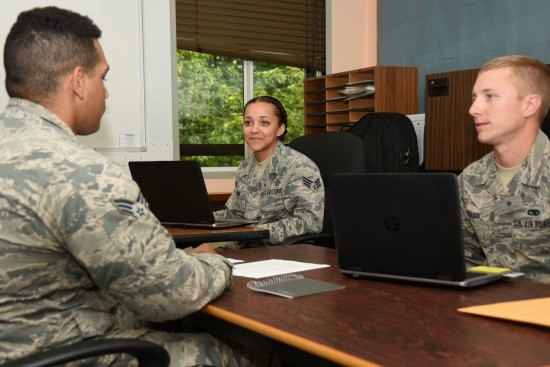
Advance Your Nursing Career, Debt-Free with the VA
The VA offers education benefits to VA employees pursing nursing careers. From scholarships to debt forgiveness, your nursing career awaits!

The VA offers education benefits to VA employees pursing nursing careers. From scholarships to debt forgiveness, your nursing career awaits!

Here we explore the top 5 jobs in America and what service members and veterans can do to be prepared to enter these fields.

A career in nonprofit management offers excellent pay and a variety of options of employers. From animal welfare to education to veteran services, the opportunities to embark on a meaningful career with excellent pay can be started in just a short period of time.

Education and training in the field of physical therapy can open doors to an exciting career with excellent pay. Embarking on a career as a licensed physical therapist can be the culmination of a fantastic education, rewarding the student with a wonderful job and a fantastic salary!

Education and training in the field of physical therapy can open doors to a great career with excellent pay. Physical therapy jobs span a variety of opportunities from public service to private sector jobs. There are also non-traditional opportunities such as outreach programs and self-employment.

Earning a Nursing Degree as a military member or veteran can accelerate your career. Get information about Nursing courses and career opportunities.

Getting an Accounting degree offers career portability to veterans and military spouses. Discover accounting careers at all education levels.

“Explore Health Information Management Careers for military, veterans & spouses. Learn about Health Information Management Certifications, careers and more.
”

A degree in hospitality can open doors to an exciting career with excellent pay. Job opportunities can be found across all 50 states and overseas in a diverse array of careers across many different types of settings from restaurants to amusement parks.

Careers in Education for Veterans and Military Spouses Every May, teachers are celebrated for their hard work and contributions to enriching the lives of students through education. Teacher Appreciation Week originated around 1950 when a teacher advocated for her profession and Eleanor Roosevelt convinced Congress to formally recognize teachers. For the nearly 1 million military-connected…

Nursing Careers for Veterans and Military Spouses Every May, nurses are celebrated for the vital role they play in healthcare. The American Association of Colleges of Nursing provides a statistical overview of the growth and demand for the profession: Nursing is the largest profession in healthcare and a large portion of the US workforce RN…

Military spouses should be able to have the same aspirations as their partners. Here’s one way how to build a sustainable military spouse career.

Finding a job as a military spouse shouldn’t be as hard as it is. Thankfully, some companies and organizations have caught on and are specifically looking providing military spouse jobs. Here are the top military spouse jobs listings. You’ll find job boards filled with opportunities and positions that fit your lifestyle and needs as a…

Although there are many different types of interviews, these 5 interview tips will help you prepare for your best interview yet!

Military spouses looking to further their career, but in need of some financial assistance… look no further. There’s a military spouse scholarship for just that. My Career Advancement Account Scholarship Program for Military Spouses My Career Advancement Account (MyCAA) Scholarship Program is a workforce development program that provides up to $4,000 of financial assistance to…